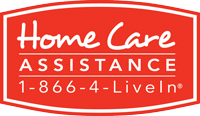Two-thirds of all seniors take at least one medication each day, and 25 percent take three or more. Many seniors owe their lives—or at least their quality of life—to medications. Of course, medicine doesn’t work if patients don’t take it. Researchers have found that getting older adults to take their medicine is a difficult task—even in those with life-threatening conditions. A new study shows it is almost hopeless to get seniors to take the medicines their doctors prescribe, let alone to follow directions for long periods. “Simple things don’t work and nothing works very well,” said lead researcher Dr. R. Brian Haynes of the McMaster University Faculty of Health Sciences in Hamilton, Ontario.
A previous study estimated that seniors only take half of the doses of the prescription medications they administer themselves. “Few people take all of their medications and many do not bother to take any,” Haynes said. Failure to take prescribed medication is linked to higher death rates.
Why do so many seniors skip their medications?
There are many potential reasons why seniors might not bother (or be able) to take their medications. These include dementia, mental illnesses, depression or confusion. Plus, many conditions, such as diabetes, have very complex monitoring and drug regimens. Some seniors are stubborn about taking medicines, believing they are unnecessary. This can be especially true for medications that affect conditions that are relatively asymptomatic, like hypertension or hypothyroidism. Worse yet are drugs that are essential but come with unpleasant side effects. Finally, some seniors may adopt a state of mind in which they believe that treating their illness is futile. They abandon hope that they will recover, and thus view taking medications as pointless.
What is the remedy?
Researchers have found that some approaches are successful in helping seniors take their medications for the short term. These include counseling and providing written instructions and pill packaging that helps patients take their drugs properly—like the day-by- day dose packaging and calendar-based pill boxes.
Getting seniors to take their drugs over long periods is much more challenging. Using daily reminders, psychological therapy and manual telephone follow-up help. However, even the most effective strategies often do not lead to major improvements in adherence or the health of seniors. Research into improving long-term success has been inconclusive. Debra Roter, a professor at Johns Hopkins Bloomberg School of Public Health, warns that strategies used in research studies are simplistic and inflexible. “Studies don’t match messiness of what patients do in everyday life.”
The caregiver connection
Since up to half of seniors are unable or unwilling to follow a prescribed medication regimen, the only sure solution is continual monitoring of medications by a caregiver. That caregiver can be a private caregiver, a family caregiver or a caregiver at a facility. Unlike family members, though, professional caregivers are often more effective at medication reminders and monitoring, since seniors tend to view them as more authoritative than relatives, especially their own children. Plus, tasked with this duty, caregivers are more reliable at following through, since they keep daily records and are less susceptible to distractions or complacency that family members may suffer.
Monitoring is critical
The attention caregivers can bring to monitoring medications can also save lives by helping to avoid accidental dangerous interactions between multiple medications. Drug interactions are a serious concern for seniors. According to the Council on Family Health, almost 40 percent of all drug reactions reported each year involve people over 60. Caregivers can also be excellent at noticing and reporting any side effects a senior may be experiencing—including dizziness, constipation, nausea, sleep changes, diarrhea, incontinence, mood changes, or a rash—after he or she takes a drug.
 Home Care Assistance,
Home Care Assistance,
1396 Hillside Avenue,
Victoria, B.C.
250-592-4881. 24 hour mobile # 250-217-8310
http://homecareassistancevictoria.ca
See all articles by Lutgarda Mariano



